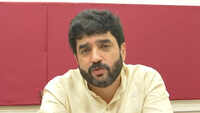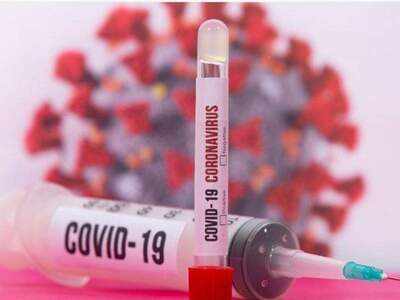
PUNE: Members of the Indian Council of Medical Research’s surveillance and clinical group told TOI on Wednesday that there has been no evidence so far of repeat Covid-19 infections, or relapses, in recovered patients.
The members were asked about possible relapses after some members of Covid-19 task forces in states said there may have been cases of infection emerging again in recovered patients.
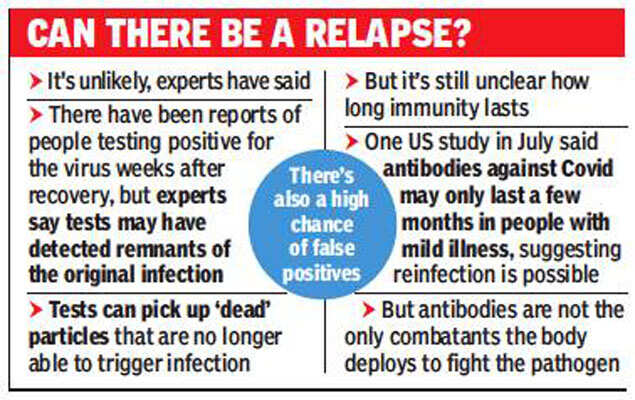
On Tuesday, state health minister Rajesh Tope too said he had heard of incidents of recovered patients complaining of breathlessness and other problems. He said he had asked state task force members to seek directions from the ICMR on the matter.
One senior ICMR surveillance group member said there has been no evidence proving relapses. “To establish a SARS-CoV-2 reinfection, one needs to show a positive live virus in a BSL-3 level lab. World over, epidemiologists have a similar view,” said Giridhara Babu, a member of the ICMR’s surveillance team.
Babu said the supposed cases of repeat infection from some states may be post-viral symptoms of Covid-19 that still need to be studied thoroughly.
No proof yet that illness can happen again: ICMR group
He said, “People are reporting prolonged postviral effects that are strikingly similar to the chronic fatigue syndrome. We need strong evidence before we can make any inference on Covid-19 reinfection.”
Shashikiran Umakanth, a clinical investigator of Covid-19 who has been involved in ICMR research projects, said the SARS-CoV-2 virus seems to be persisting in some individuals for a longer duration.
“But after about a week or 10 days, we know it is no longer capable of spreading and causing infection in others. The commonly performed tests to diagnose Covid-19 can identify virus particles, but cannot decipher if these particles are live or inactivated,” he said.
Umakanth, who is head of department of medicine at a hospital in Manipal, Karnataka, said there can be confusion if a recent Covid-19 recovery develops fever or cough due to some other viral infection. The dead particles of SARS-Cov-2 can then be detected via a test and interpreted as a case of reinfection even though those particles are ineffective.
Sample transportation via cold chain protocols is also key. A patient who was declared negative after an erroneous test may show as positive again if samples have been transported or preserved better a second time.
“There is still no definite proof that Covid-19 can happen a second time,” said Umakanth. “But we are still not sure how long immunity to this virus lasts. Only time and more experience will tell us more. Until then, there is no need to worry about Covid happening a second time. However, it’s still very important to keep up precautions,” he said.
The members were asked about possible relapses after some members of Covid-19 task forces in states said there may have been cases of infection emerging again in recovered patients.

On Tuesday, state health minister Rajesh Tope too said he had heard of incidents of recovered patients complaining of breathlessness and other problems. He said he had asked state task force members to seek directions from the ICMR on the matter.
One senior ICMR surveillance group member said there has been no evidence proving relapses. “To establish a SARS-CoV-2 reinfection, one needs to show a positive live virus in a BSL-3 level lab. World over, epidemiologists have a similar view,” said Giridhara Babu, a member of the ICMR’s surveillance team.
Babu said the supposed cases of repeat infection from some states may be post-viral symptoms of Covid-19 that still need to be studied thoroughly.
No proof yet that illness can happen again: ICMR group
He said, “People are reporting prolonged postviral effects that are strikingly similar to the chronic fatigue syndrome. We need strong evidence before we can make any inference on Covid-19 reinfection.”
Shashikiran Umakanth, a clinical investigator of Covid-19 who has been involved in ICMR research projects, said the SARS-CoV-2 virus seems to be persisting in some individuals for a longer duration.
“But after about a week or 10 days, we know it is no longer capable of spreading and causing infection in others. The commonly performed tests to diagnose Covid-19 can identify virus particles, but cannot decipher if these particles are live or inactivated,” he said.
Umakanth, who is head of department of medicine at a hospital in Manipal, Karnataka, said there can be confusion if a recent Covid-19 recovery develops fever or cough due to some other viral infection. The dead particles of SARS-Cov-2 can then be detected via a test and interpreted as a case of reinfection even though those particles are ineffective.
Sample transportation via cold chain protocols is also key. A patient who was declared negative after an erroneous test may show as positive again if samples have been transported or preserved better a second time.
“There is still no definite proof that Covid-19 can happen a second time,” said Umakanth. “But we are still not sure how long immunity to this virus lasts. Only time and more experience will tell us more. Until then, there is no need to worry about Covid happening a second time. However, it’s still very important to keep up precautions,” he said.

Coronavirus outbreak
Trending Topics
LATEST VIDEOS
City
 Sushant Singh Rajput case: My officers were humiliated in Mumbai, says Bihar DGP
Sushant Singh Rajput case: My officers were humiliated in Mumbai, says Bihar DGP 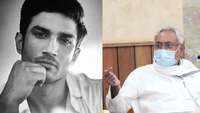 SC orders CBI probe into SSR death: Full faith that the family will get justice, says Bihar CM Nitish Kumar
SC orders CBI probe into SSR death: Full faith that the family will get justice, says Bihar CM Nitish Kumar 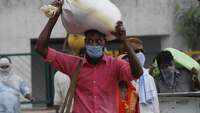 Covid-19 crisis: 5 million salaried Indians lost their jobs in July
Covid-19 crisis: 5 million salaried Indians lost their jobs in July 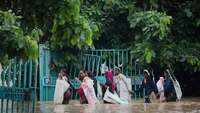 Monsoon mayhem in Delhi-NCR: Heavy rain leads to water logging, traffic jams, wall collapse
Monsoon mayhem in Delhi-NCR: Heavy rain leads to water logging, traffic jams, wall collapse
More from TOI
Navbharat Times
Featured Today in Travel
Quick Links
Kerala Coronavirus Helpline NumberHaryana Coronavirus Helpline NumberUP Coronavirus Helpline NumberBareilly NewsBhopal NewsCoronavirus in DelhiCoronavirus in HyderabadCoronavirus in IndiaCoronavirus symptomsCoronavirusRajasthan Coronavirus Helpline NumberAditya ThackerayShiv SenaFire in MumbaiAP Coronavirus Helpline NumberArvind KejriwalJammu Kashmir Coronavirus Helpline NumberSrinagar encounter
Get the app
